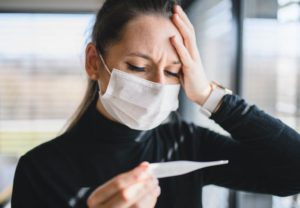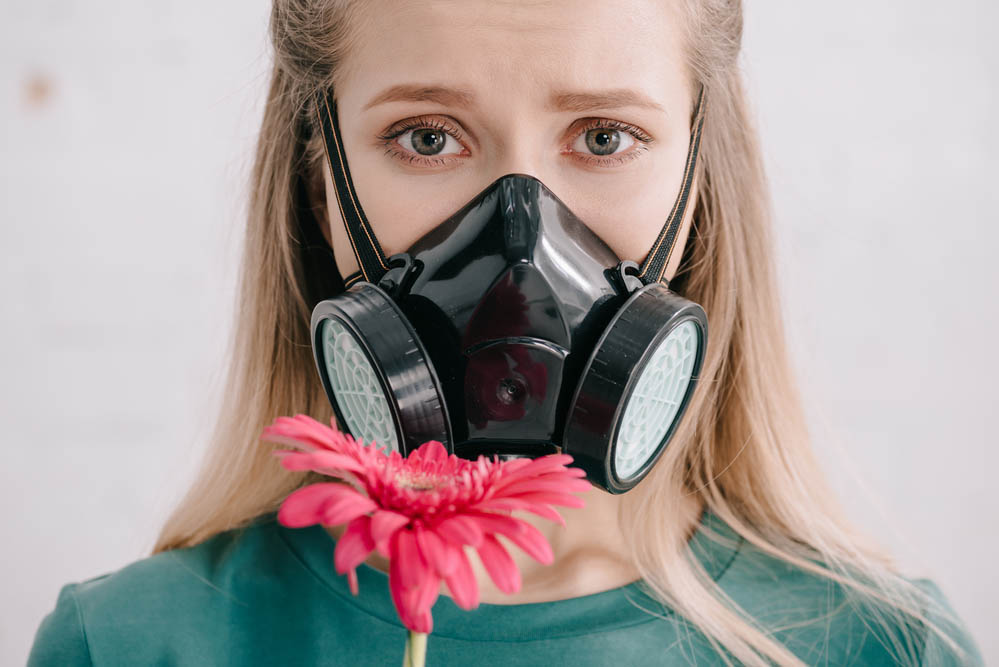When you’re sneezing, wheezing and itching all over, does it mean you have allergies? Or perhaps it’s the highly infectious COVID-19?
Despite the overlapping symptoms of these conditions, they’re entirely different from each other.
Allergy symptoms vs. COVID-19 symptoms: Similarities
The similarities between allergy symptoms and COVID-19 symptoms can be confusing since both conditions present with symptoms that affect the respiratory system, such as coughing and shortness of breath.
Those with both allergies and COVID-19 may experience fatigue and body aches as well.
How to tell the difference between allergy and COVID-19 symptoms
There are a few key points to consider when you distinguish between allergy and COVID-19 symptoms.
1. Seasonal allergies follow a schedule.
Seasonal allergies have a predictable pattern. Allergy symptoms typically occur at the same time each year, coinciding with the release of specific allergens, such as:
- Ragweed pollen
- Burning bush
- Pigweed
While both conditions may exhibit similar symptoms, consistency in timing can be a key factor. On the other hand, COVID-19 symptoms can arise at any time, without following a specific schedule. This unpredictability makes it crucial to stay vigilant and monitor symptoms closely.
2. Allergies come with a significant itch factor.
Intense itchiness is the hallmark of allergic reactions.
When experiencing allergies, these body parts may feel itchy:
- Nose
- Sinuses
- Throat
- Ear canals
3. Allergies never cause fevers.
Since allergies are caused by an immune system response to harmless substances, they do not typically cause fevers. They can, however, indirectly lead to fever when your sinuses are infected.
On the other hand, fever is one of the common symptoms of COVID-19. While not everyone with COVID-19 will experience a fever, we recommend further evaluation if you’re experiencing fever.
COVID-19 symptoms vs. allergy symptoms
While both conditions may involve respiratory symptoms, there are key differences that can help you differentiate between the two.
COVID-19 symptoms commonly include:
- Fever
- Cough
- Shortness of breath
- Fatigue
- Muscle or body aches
On the other hand, allergies typically manifest as:
- Sneezing
- Runny or stuffy nose
- Watery and itchy eyes
- Itchy sinuses, throat or ear canals
Less common allergy symptoms may include:
- Headache
- Shortness of breath
- Wheezing
- Coughing
While allergies can cause discomfort, they’re not infectious. COVID-19 is highly contagious and is primarily transmitted through respiratory droplets from:
- Coughing
- Sneezing
- Close personal contact

How to prevent COVID-19
To protect yourself and others from contracting COVID-19, follow guidelines provided by reputable sources such as the CDC and local health departments.
First and foremost, practice good hygiene Including:
- Wash your hands regularly with soap and water for at least 20 seconds
- Use hand sanitizer with at least 60% alcohol
- Avoid touching the face, especially the eyes, nose and mouth
Social distancing is another key measure to prevent the spread of COVID-19. Maintain a distance of at least six feet from others, especially those who are coughing, sneezing or exhibiting symptoms. This reduces the risk of inhaling respiratory droplets containing the virus.
When social distancing is challenging, like when in public places, wear a mask or face covering. Masks help prevent the transmission of the virus by containing respiratory droplets when an infected person talks, coughs or sneezes.
To help the spread of COVID-19, you can also regularly clean and disinfect frequently touched surfaces, such as:
- Doorknobs
- Light switches
- Cell phones
How to ease allergy symptoms
There are various strategies to use in easing allergy symptoms.
- Over-the-counter antihistamines
These medications block the release of histamine, which is the chemical that triggers allergic reactions. They’re effective if you’re experiencing symptoms, like:
- Sneezing
- Runny or stuffy nose
- Itchy eyes
- Lifestyle changes
If you have environmental allergies, keeping indoor environments clean and free of dust and pet dander
At home, using air purifiers can also be helpful. See to it that you’re up to date with the cleaning chores, as well, including:
- Washing the beddings
- Vacuuming the carpets
- Cleaning the curtains
When spending time outdoors, wear sunglasses to protect your eyes from pollen and to shower and change clothes after coming indoors.
- Nasal irrigation
Nasal irrigation using a saline solution can provide relief by flushing out allergens and reducing nasal congestion. You can do this using a neti pot or a saline nasal spray. Applying a cold compress to itchy and swollen eyes can also provide temporary relief.
Though these strategies may not completely eliminate allergy symptoms, they can significantly improve your quality of life. Consult with a healthcare professional to determine the most appropriate treatment plan for your specific allergies.
Treatment of an allergy vs. COVID-19
The main goal of allergy treatment is to ease the symptoms by taking medications such as antihistamines, decongestants and nasal sprays.
For more severe cases, your healthcare provider may suggest immunotherapy, which involves exposing your body to small amounts of the allergen to build tolerance over time.
On the other hand, COVID-19 is a viral infection caused by the novel coronavirus and its treatment involves managing symptoms and preventing complications.
Mild cases can be managed at home with rest, fluids, and over-the-counter pain relievers to reduce fever and body aches.
Severe cases may require hospitalization, where treatment may include:
- Oxygen therapy
- Antiviral medications
- Other supportive care
Key takeaway
Both allergies and COVID-19 can affect the respiratory system, causing symptoms like coughing and shortness of breath.
While COVID-19 is highly contagious, allergies are a noncontagious condition that also doesn’t cause fever.
Understanding the differences between these two conditions can help you make informed decisions regarding your health and seek appropriate care.




















































